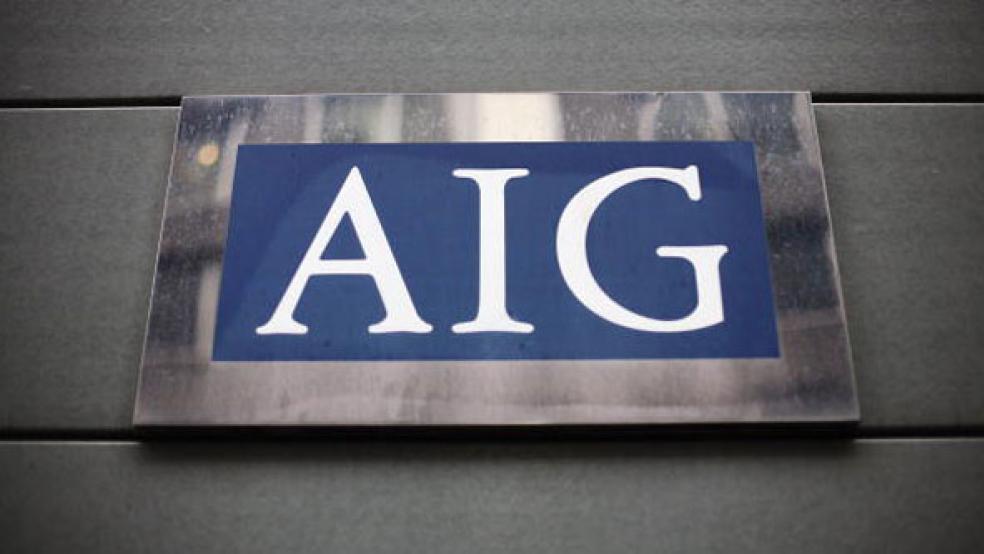As a legal matter, AIG had every right to join the shareholder lawsuit led by its former honcho, Maurice Greenberg, over the terms of its government bailout. There’s even an argument that the company, as part of its fiduciary duty to its shareholders, had a duty to see if it could get some part of a settlement on behalf of those investors.
But sometimes you’re better off not exercising all your rights. Joining in the lawsuit wouldn’t just have been squandering any goodwill that AIG has earned in recent years. It would have been the most cynical return to “business as usual” that we have seen on the part of the financial services industry since the 2007-2008 crisis abated.
Recent years have seen plenty of Wall Street institutions pushing back against new regulations, or arguing that the crisis was due to poor government policies and not imprudent lending, shoddy risk management or excessive greed. But the AIG shareholder lawsuit is an extreme example of this trend, and from a particularly poor source.
It’s one thing for JPMorgan Chase CEO Jamie Dimon, whose institution went into the crisis in a stronger position than most of its peers, to insist that there is little need for additional oversight of the Wall Street by regulators. It’s something else for the folks who turned a blind eye to the problems that led to AIG’s de facto collapse to sue the entities whose commitment of taxpayer assets permitted it to survive. It’s rather like suing someone who saved you from drowning – after you fell into the river while goofing around – for breaking your arm during the rescue.
AIG’s decision to shun this particular poisoned chalice is a wise one. True, the lawsuit raises one interesting question: Did the government deter foreign investors, including sovereign wealth funds, that might have been willing to invest new capital in AIG before a rating agency downgrade essentially sealed its fate? From a purely academic standpoint, getting an answer to that question would be fascinating. On the other hand, doing so is probably impossible. I’m sure that the claimants are able to produce witnesses who, with 20/20 hindsight, will say they would have been willing to contemplate such an investment on less onerous terms (described as unfair terms by the plaintiffs) than the government eventually imposed. But hindsight renders clear and readily comprehensible events that at the time were far more chaotic.
AIG’s participation in the suit might also have created an unfortunate precedent, given that the financial universe today remains full of institutions that are widely viewed as “too big to fail.” Do we really want a representative of this industry to argue that we should just leave them to sort things out in times of crisis, even when their own actions have precipitated that crisis and even when the results might jeopardize the entire financial system?
The suit is, strikingly, based on an assumption that the world was “normal” at the height of the financial crisis. The plaintiffs claim that the government’s actions represented a violation of the Fifth Amendment, constituting unreasonable seizure of shareholder assets. But this wasn’t a case of the government exercising eminent domain – aware of some value in the company’s assets and seeking to acquire while denying the current owners the ability to say “no.” On the contrary, AIG was given a choice – and indeed, as a New York Times blog post detailed, even after the deal was done, the government took steps to make the bailout less onerous for the company and improve the odds that the company would not only survive but thrive. Which is what is happening today.
It’s hard to recapture the panic and terrified uncertainty that swept through Wall Street in the final weeks and months of 2008. For all of Jamie Dimon’s later blasé comments that financial crises come along every few years, this last crisis was of a kind that few alive had ever witnessed. The change in the nature of the system made many fear for its very survival.
AIG’s shareholders may choose to forget or overlook that; it’s reassuring that AIG’s current management team isn’t so disconnected from or oblivious to recent history to join their crusade. It’s unfortunate that they ever flirted with the idea of joining this legal action. Happily, either common sense or a sense of self-preservation (at least from a PR standpoint) kicked in before it was too late.






